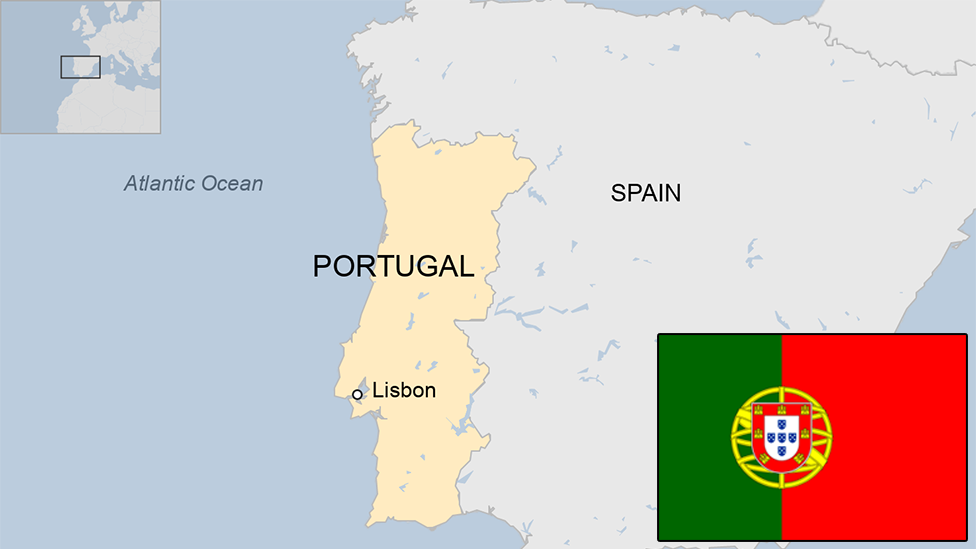Portugal court rules against civil servant sacking plan
- Published

Trade is brisk at this market near Lisbon, as Portugal's official statistics office suggests business confidence continues to improve, after a long period of recession.
Portugal's highest court has ruled that the government's plan to make it easier to sack public servants is unconstitutional.
The court said the measures contravened state job safety guarantees.
It is a set-back for Portugal's policy of reducing government spending in the wake of an international bailout.
The government has promised creditors a big reduction in its budget deficit. Other austerity measures have already been rejected by the same court.
The bill was seen as important because of its potential longer-term structural effect on spending cuts, Reuters news agency reports.
However, the proposals would have had a relatively low direct impact on the 2014 budget.
The government of Prime Minister Pedro Passos Coelho wants to cut 30,000 public jobs from a pool of 500,000, saving 4.7bn euros ($6.2bn) by the end of next year.
Court stance
Portugal's conservative President Anibal Cavaco Silva had asked the constitutional court to decide on the legality of the recent bill.
Analysts say the ruling may worry investors as it suggests the court could reject more of the government's planned austerity measures.

Portugal's Prime Minister Pedro Passos Coelho had to fight off a confidence motion in parliament last month
The fear is that further rejections could jeopardise the deficit targets set out in the European Union and International Monetary Fund's 78bn euro bailout deal that ends in mid-2014.
Under the terms of the bailout, agreed in May 2011, Portugal has had to enact a series of austerity reforms to get its finances in order.
In July, the Coelho government suffered a political crisis when several powerful ministers resigned over widespread public resistance to further austerity policies as part of the bailout.
Meanwhile, official data released on Thursday suggested that Portugal's business confidence had improved for the eighth month in a row in August.
The economic climate indicator, which measures business confidence, stood at minus 2.1 this month, up from minus 2.6 in July, and also better than minus 3.5 a year earlier, the National Statistics Institute (INE) said, according to Reuters news agency.
- Published20 August 2013

- Published14 August 2013

- Published22 March 2024
